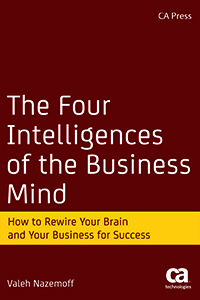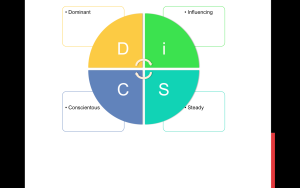A libertarian participant on a LinkedIn discussion group posted,
how does business do anything to make you miserable ??
dont like their products then dont buy them
without biz making those things you would [be] naked growing your own vegetables in the wilderness
My response:
William: I know you espouse libertarianism but I don’t think of you as naive. I was once a member of the Libertarian Party, and still see a great deal of merit in libertarian approach to foreign policy as well as civil liberties; I would love to see Ron Paul as US Secretary of Defense, because if HE were willing to go to war, the situation must be dire indeed. But when you write,
You come across as VERY naive. Or are you pulling our collective (yes, a loaded word in libertarian circles) chain?
Consider…there are many corporations that do great things, create reasonably enjoyable workplaces, and work to heal the planet. BUT, worldwide, there are others that 1) create utter misery for their employees (think about the sweatshop workers in the factory that burned in Bangladesh a year or two ago); 2) pollute and destroy the neighborhoods they’re located in, causing severe adverse health effects for their neighbors and others; 3) rape the earth for their raw materials and then dump the toxic leftovers back on the poor, beleaguered planet, taking no responsibility for their actions.
You will say to #1 that no one forces people to work in slave conditions; they could just go off and start their own business if they don’t want to work for “The Man.” I did that, and from your ID line, it looks like you did, too. But that’s disingenuous. Not everybody can think through that alternative, not everybody has access to even a sliver of capital. If you’re making barely enough to keep your family from starving and from being thrown out of your one-room shack, even a few bucks will be too much.
I started my own business with $200. I was pretty poor at the time, but I did have the $200 (and even a bit more) in the bank. And I had to survive during the very lean start-up phase. At the time (1981), I knew almost nothing about marketing and was in a community that had little use for the service I was offering. I made $300 the first 6 months—before we moved to a more supportive community—and lived on a mix of rapidly depleting savings, odd-job income, and what my wife-to-be brought in from her meager job at a restaurant. But I had that luxury! I had a couple of thousand in the bank that I could draw from. Many people in developing countries, or even in our own inner cities and poor rural areas, do not. If they have no job and they start a business that isn’t immediately viable, how do they eat?
I would have more respect for the libertarian position if it accepted responsibility for #s 2 and 3. But libertarians discredit themselves with me when they claim that it’s their right to plunder the earth because they got there first, and that it’s perfectly OK to extract the resources, pollute and dump wastes just because of that arbitrary fact.I don’t object to profit; I make a chunk of my living writing and speaking about how to be a better capitalist, after all. But I have no respect for businesses that claim they have every right to privatize their profit while externalizing—dare I say socializing—the harm. A true libertarian would see overharvesting and pollution/dumping as theft from others, forcing them to incur economic costs to clean up someone else’s mess. But somehow, the libertarians I know sound a theme more like “we got here first, too bad for the rest of you, and the mess is not our problem.”
Libertarians often cite economist Milton Friedman on the social responsibility of business to maximize profits. However, even Friedman saw a need to limit business. I went back to the source: his New York Times Magazine essay of September 13, 1970. And to my amazement, I found that Friedman added some major conditions to his remarks. Here’s what he actually said:
In a free-enterprise, private-property system, a corporate executive is an employee of the owners of the business. He has direct responsibility to his employers. That responsibility is to conduct the business in accordance with their desires, which generally will be to make as much money as possible while conforming to the basic rules of the society, both those embodied in law and those embodied in ethical custom. (emphasis added)
At the very end of the essay, he quotes from his own textbook and repeats the qualifier, phrased a bit differently:
“there is one and only one social responsibility of business–to use [its] resources and engage in activities designed to increase its profits so long as it stays within the rules of the game, which is to say, engages in open and free competition without deception or fraud.” (emphasis added once more)
To put it another way, in this essay, Friedman was totally willing to concede that self-rule doesn’t always work in the business world. Government is needed to keep business from exercising its self-interest at the expense of others’ self-interest and the wide society’s interest. Whether it’s a retailer avoiding the cost of health insurance by paying its workers so little that they qualify for government assistance or a manufacturer spewing poisons into the air and water and land, expecting that the government—in other words, the taxpayers: we the people—to clean it up, I would definitely count as “deception or fraud”: the externalizing of responsibility for the mess.










